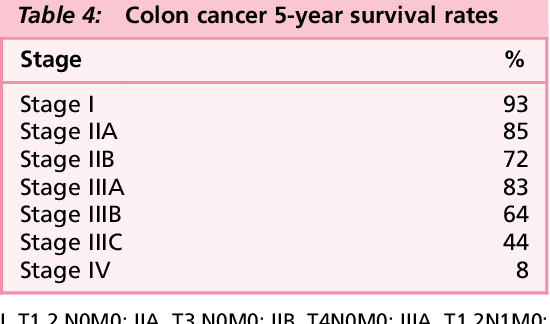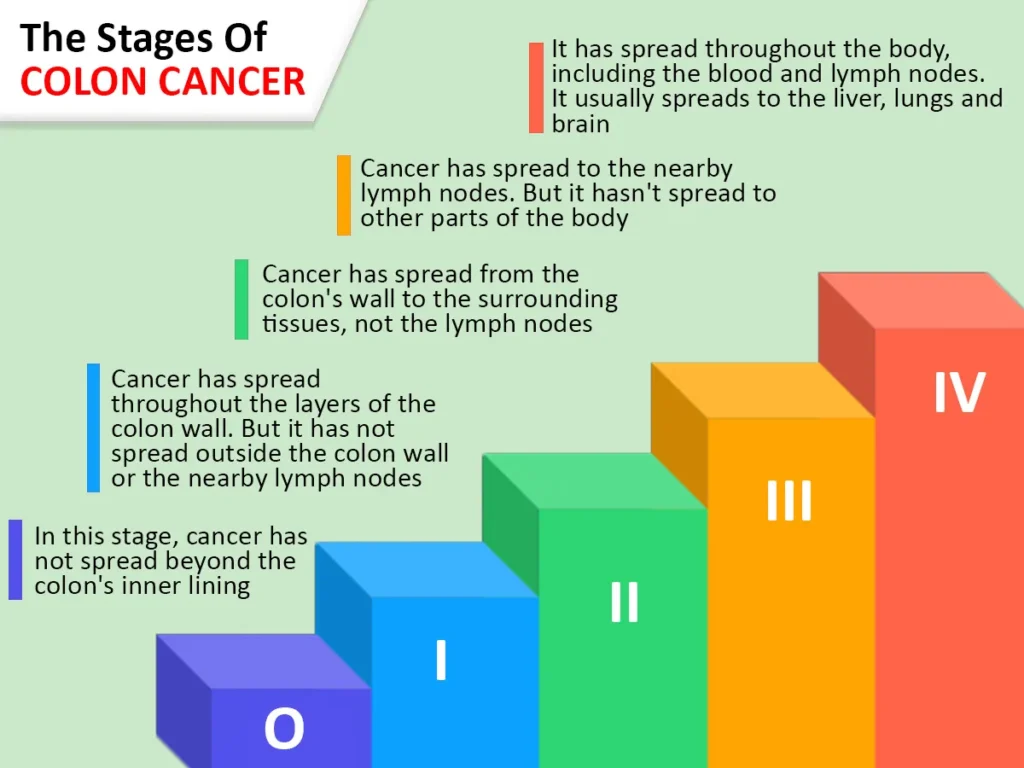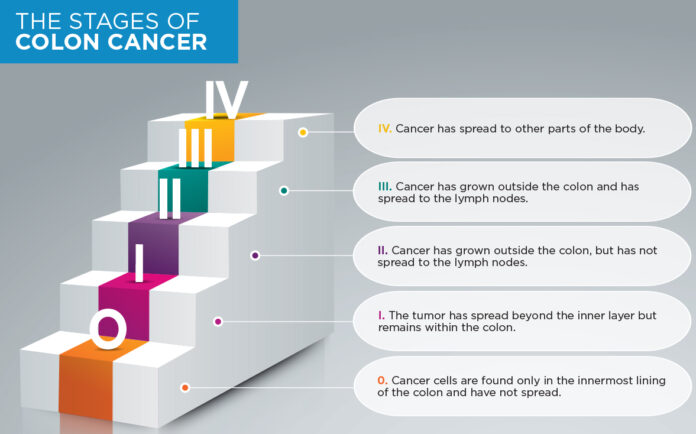Stage 4 Colon Cancer Survival Rate
Among the options include targeted therapy, surgery, chemotherapy, and ablation. Palliative care is an additional option. The 5-year relative survival rate for stage 4 colon cancer in the US is 13%. Personalized treatment planning will be discussed with you by your oncologist based on your specific circumstances. Also read this article: Stage 4 Colon Cancer
Comprehensive Guide to Stage 4 Colon Cancer: Survival Rates, Treatments, and Beyond
Stage 4 colon cancer, also known as metastatic colon cancer, represents the most advanced stage of the disease where cancer has spread beyond the colon to other organs or distant lymph nodes. Understanding this stage’s complexities and survival outlook is crucial for patients and their families. This guide integrates the latest insights on stage 4 colon cancer survival rates, treatment options, lifestyle impacts, and support systems.
Survival Rates and Prognosis
The 5-year relative survival rate for stage 4 colon cancer varies, with recent figures indicating around 13% to 14%. These statistics reflect the proportion of people likely to be alive five years after diagnosis. While these numbers provide a general outlook, individual survival depends on numerous factors including age, overall health, and the extent of cancer spread. Survival rates are gradually improving due to advances in treatment, offering hope for many patients. Discover more: How I Knew I Had Colon Cancer

Treatment Options
Patients with stage 4 colon cancer have several treatment avenues, including:
- Targeted Therapy: This approach focuses on specific cancer cells without affecting normal cells.
- Surgery: In some cases, surgical intervention may be possible to remove localized tumors.
- Chemotherapy: Utilizes drugs to target and destroy cancer cells throughout the body.
- Ablation: Techniques such as radiofrequency ablation can destroy tumors using heat or other methods.
If standard treatments are ineffective, clinical trials offer new and experimental options. These trials test innovative therapies that may not yet be widely available, potentially providing access to cutting-edge treatments.
Lifestyle and Coping Strategies
Beyond medical treatments, lifestyle changes play a significant role in managing stage 4 colon cancer. Adopting a healthy diet, maintaining a healthy weight, engaging in regular exercise, and avoiding tobacco and excessive alcohol can enhance overall well-being and support treatment efforts.
Effective coping strategies are also essential. Emotional and psychological support can significantly impact a patient’s quality of life. Engaging with support groups, counseling services, and practicing stress management techniques are beneficial.
Palliative and Support Care
Palliative care is an integral part of managing stage 4 colon cancer, focusing on alleviating symptoms and improving the quality of life. Unlike hospice care, palliative care is not exclusive to end-of-life scenarios but is available alongside other treatments. It addresses pain management, emotional support, and spiritual care, involving a multidisciplinary team including doctors, nurses, dietitians, and social workers.
Research and Future Prospects

Ongoing research and clinical trials are vital for advancing the treatment of stage 4 colon cancer. These studies explore new therapies and potential breakthroughs that could improve survival rates and quality of life. Staying informed about the latest medical advancements and participating in relevant trials can offer additional treatment options.
Support Systems and Resources
Building a robust support system is crucial. Emotional support from family, friends, and support groups can provide strength and encouragement. Additionally, practical assistance with daily tasks can alleviate some of the burdens associated with the disease.
Conclusion
Navigating stage 4 colon cancer involves understanding survival rates, exploring treatment options, and incorporating lifestyle changes. While the prognosis can be challenging, advancements in treatment and supportive care offer hope. Staying informed and engaged in your care can make a significant difference in managing this complex condition.
FAQs
Q: Is stage 4 colon cancer always fatal?
A: While the prognosis is serious, improvements in treatment have led to better survival rates and extended life expectancy for many patients.
Q: What lifestyle changes can help in preventing colon cancer?
A: Maintaining a healthy diet, engaging in regular exercise, and avoiding tobacco and excessive alcohol can lower the risk of colon cancer.
Q: How can family and friends support someone with stage 4 colon cancer?
A: Providing emotional support, actively listening, and offering practical assistance with daily tasks can significantly aid the patient.
Q: Are there alternative therapies for stage 4 colon cancer?
A: Some patients explore complementary therapies, but it’s essential to consult with healthcare professionals to ensure these are safe and effective.
Q: What role does genetic testing play in the treatment of stage 4 colon cancer?
A: Genetic testing helps tailor treatments based on individual genetic characteristics, leading to more personalized and effective care.








